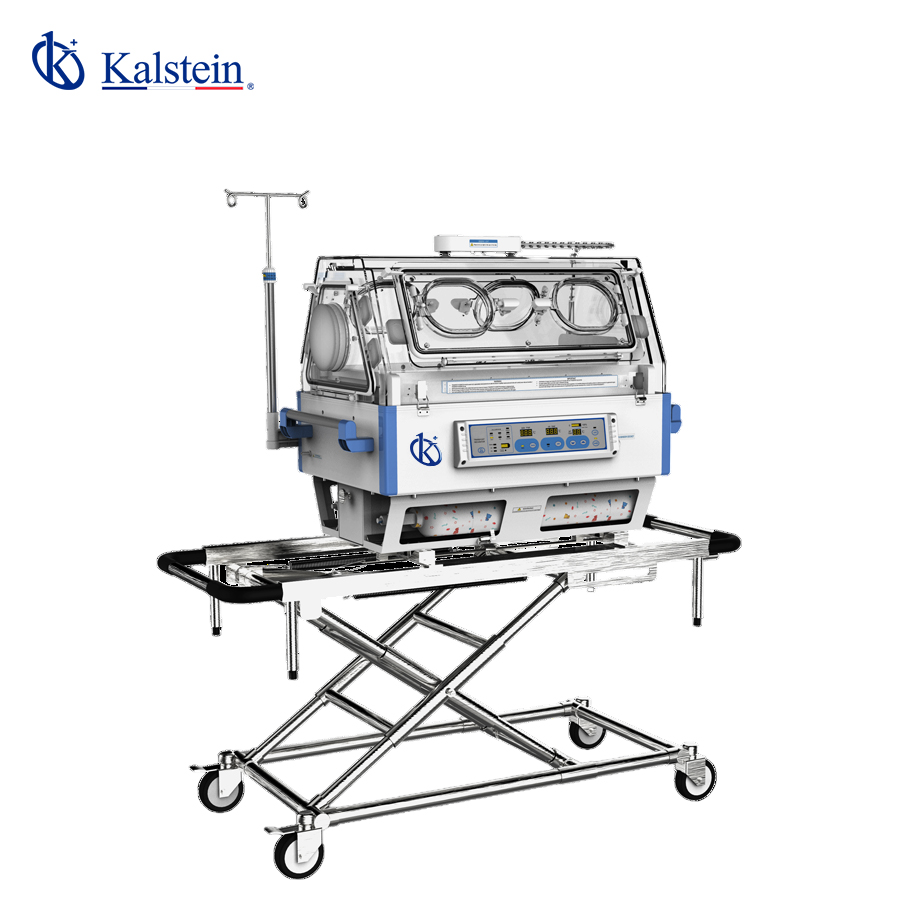Medical technology has advanced significantly in recent decades, and one of the most notable developments is the infant phototherapy incubator. This essential device in neonatal intensive care units combines the functions of a traditional incubator with phototherapy, providing a safe and controlled environment for newborns requiring treatment for jaundice.
In this article, we will conduct an exhaustive review of the infant phototherapy incubator, exploring its key aspects from design to performance, and how it contributes to improved clinical outcomes and diagnostic accuracy.
Ergonomic Design and Advanced Functionality
The design of an infant phototherapy incubator is crucial to ensuring the comfort and safety of the newborn. These incubators are crafted from hypoallergenic and non-toxic materials, ensuring that babies are not exposed to harmful substances. Additionally, the structure must be robust yet flexible enough to allow easy access for medical personnel.
The ergonomic aspect of the incubator focuses on facilitating access and interaction between medical staff and the baby. Access doors, adjustable panels, and transparent windows enable constant supervision without needing to open the incubator, which helps maintain a stable environment. Advanced functionality includes precise controls for temperature and humidity, essential for the newborn’s well-being.
Effectiveness of Phototherapy in Treating Jaundice
Neonatal jaundice is a common condition affecting many newborns. Phototherapy is the standard treatment for this condition, and combining phototherapy with an incubator offers an integrated and effective approach. Phototherapy incubators use blue LED lights to break down bilirubin in the baby’s skin, facilitating its elimination.
The effectiveness of phototherapy depends on several factors, including the intensity and wavelength of the light used. Modern phototherapy incubators are equipped with adjustable lighting systems that allow for customized treatment based on the specific needs of each baby. This ensures that the treatment is both effective and safe, minimizing the risk of damage from excessive light exposure.
Impact on Improved Clinical Outcomes
One of the main benefits of the infant phototherapy incubator is its positive impact on clinical outcomes. By providing a controlled environment and effective phototherapy treatment, these incubators help significantly reduce blood bilirubin levels, speeding up the newborn’s recovery and decreasing the need for additional treatments.
Improvement in clinical outcomes translates to a shorter hospital stay for babies affected by jaundice, which is beneficial for the baby’s well-being and reduces hospital costs. Additionally, the reduced hospital stay lowers the risk of nosocomial infections and other complications associated with prolonged stays in the neonatal intensive care unit.
Diagnostic Accuracy and Continuous Monitoring
Diagnostic accuracy is crucial in neonatal care, and the infant phototherapy incubator plays a vital role in this aspect. Equipped with advanced sensors and monitoring systems, these incubators allow continuous monitoring of the baby’s vital signs, including body temperature, heart rate, and blood oxygen levels.
Continuous monitoring enables the immediate detection of any anomalies or changes in the newborn’s condition, facilitating rapid and effective intervention. This diagnostic accuracy ensures that babies receive appropriate treatment promptly, significantly improving recovery prospects and long-term health.
Technological Innovations and the Future of Neonatal Care
Technological innovations in infant phototherapy incubators have revolutionized neonatal care. Integrating intelligent systems and IoT (Internet of Things) technology allows remote management and control of incubators, optimizing newborn care even from a distance. These advancements not only improve treatment efficiency but also enable personalized care tailored to the individual needs of each baby.
The future of neonatal care looks even more promising with the continuous development of advanced technologies. Future phototherapy incubators could incorporate artificial intelligence to predict and prevent complications and optimize treatment based on real-time data. These innovations have the potential to transform neonatal care radically, offering safer, more effective, and personalized solutions.
The Infant Phototherapy Incubator as a Pillar of Neonatal Care
In summary, the infant phototherapy incubator is an essential device in neonatal intensive care units, combining comprehensive care with specific treatment for neonatal jaundice.
Its ergonomic design, treatment effectiveness, impact on clinical outcomes, diagnostic accuracy, and technological innovations make it an invaluable tool for improving newborn health and well-being.
Are you yearning for top-tier medical equipment, ready to enhance the efficiency of your laboratory? Visit https://kalstein.de/category-product/medical-line/infant-phototherapy-incubator/ to explore our high-end catalog, packed with the best finds at the most competitive prices. Excellence marks our brand, we innovate and manufacture high-precision equipment, both reliable and durable to meet your needs. Why wait? Make your quick and secure online purchase, take the leap towards the future of medical technology today. https://kalstein.de/

